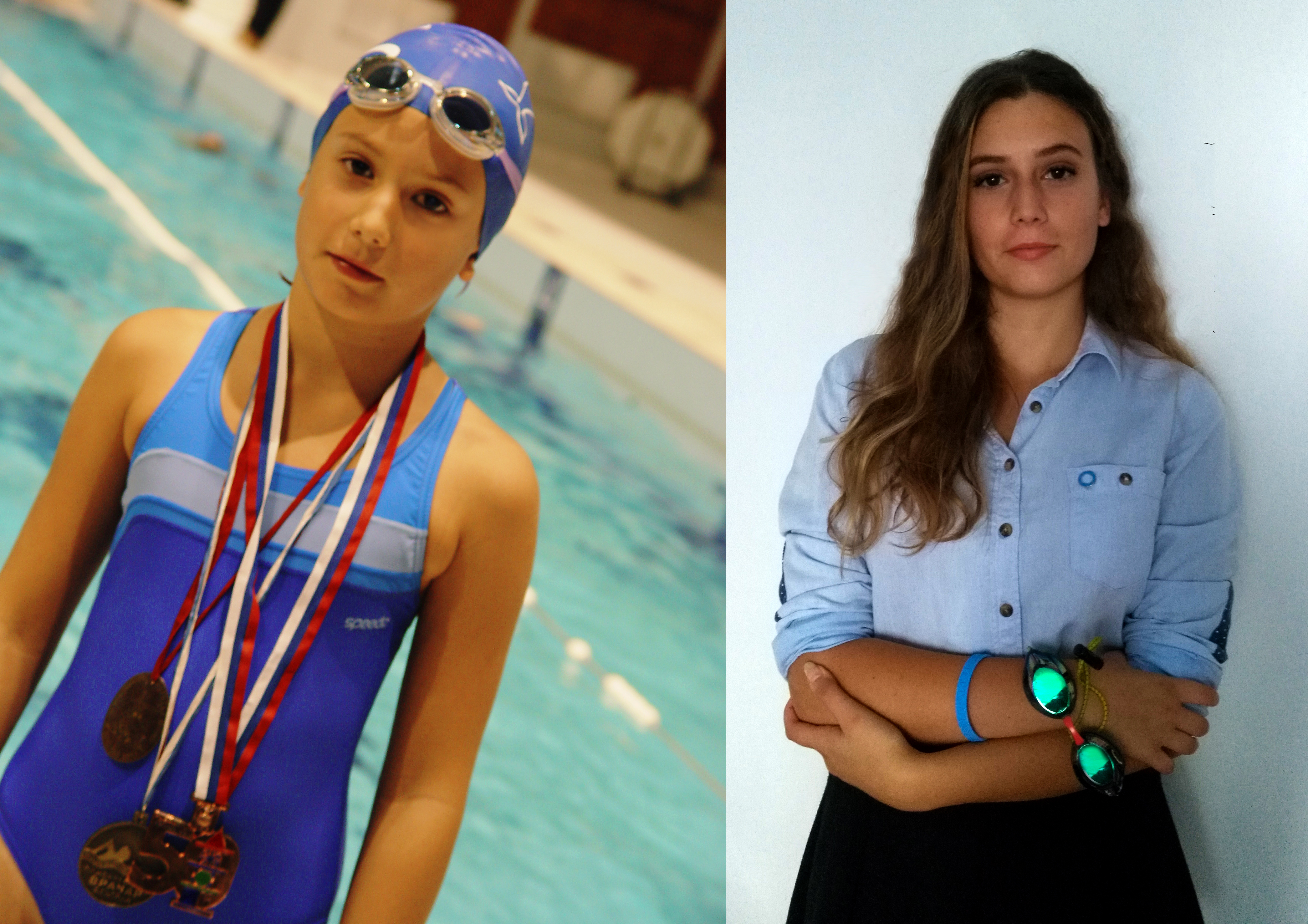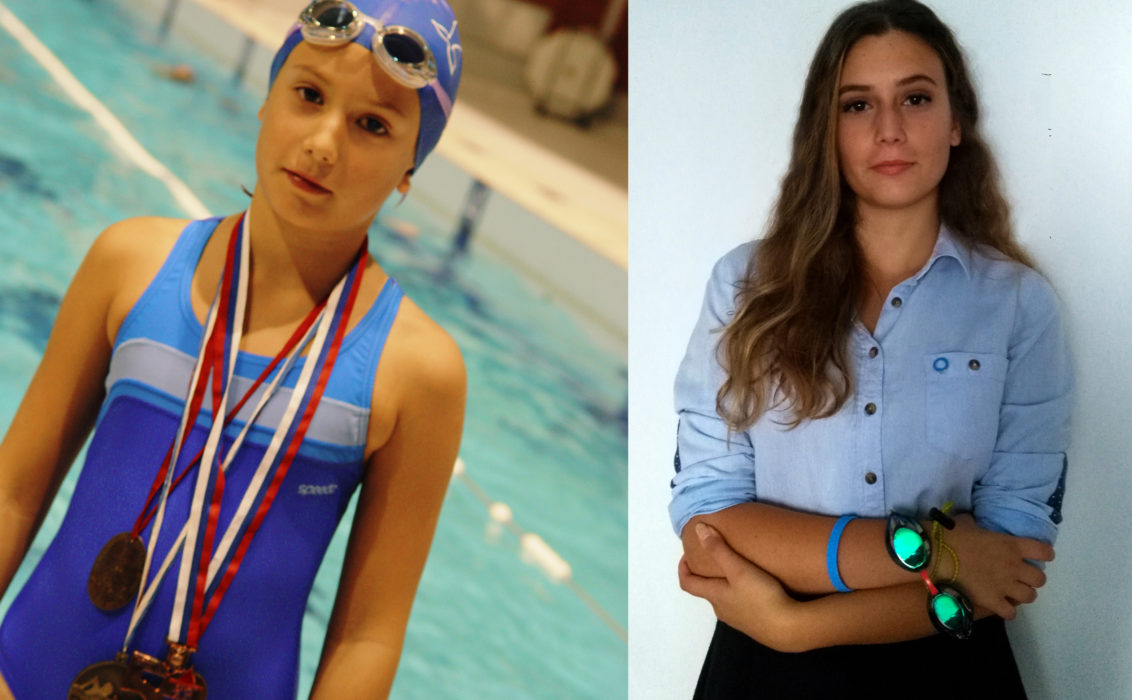
“Swimming is like diabetes, it is an individual sport which requires a teamwork to be optimized.” inspiring stimulating interview with Jelisateva Fotic
In Europe, two-thirds of adolescents are insufficiently active and almost half of our citizen’s age 18 or older do not play any sport. Regardless of age, background, and health, physical activity #BeActive is a great way to prevent diseases such as type 2 diabetes, and avoid debilitating complications linked to this condition. On the occasion of European Week of Sport, we spoke to Jelisateva Fotic, an international swimmer, diabetes advocate and alumni of the IDF Europe Youth Leadership Camp, about sport, family, responsibilities and pushing our limits.
Jelisaveta, you started learning swimming at a very young age; what was your motivation?
I have to say that I am extremely grateful to my dad. He is a former water polo player so it was only natural for him to teach me the basics of swimming as soon as possible, so I started when I was two, and at the age of four, I had my first official swimming lessons. I was then the youngest child in my swimming lessons group. My father knew that sport doesn’t only help in the proper development of our bones and muscles, but that it helps us grow mentally as well. And he knew swimming had it all. Swimming has taught me strength, organization, resilience, and determination. If I had stopped swimming after I learned all four strokes, I would be a completely different person today.
At the age of 5, you were diagnosed with type 1 diabetes. What was the impact on your passion for swimming? What was the reaction of your training companions and coaches?
After a severe case of viral bronchitis, my immune system crashed and my pancreas stopped producing insulin completely. At the time, my parents didn’t even know that type 1 diabetes existed. After the initial shock faded, my parents started calling their friends from the US and wealthier European countries to send us books, because at the time there were only one or two outdated publications available in Serbia. At the same time, my parents agreed that it would be beneficial for me to continue swimming. The coach sat down with my parents, got a package of glucose pills for his pocket, and that was that. Whereas I never felt completely alright with children from school, water was my safe place. For me, everyone is equal in water. And I am extremely lucky that in my club everyone was genuinely interested in my condition and wanted me to explain everything I knew so that they would be able to help me in case of emergency. Some of my best friends today are the same I met when I was six.
I was training a lot, up to three times per day during high school. Consequently, I ate a lot. It is known that swimming burns twice as many calories as other sports because of the water is twelve times as dense as air, so the way I ate didn’t affect my diabetes. No matter how hard it got and how exhausted I felt, I never wanted to quit. I would check my blood sugar before going into the water, depending on how I felt during practice I would check it again, and then another time after the practice. When I felt low, I would usually signal the coach so that he knew what was going on, go to my bag and take glucose pills and juice, depending on how low I was.
You know, swimming is like diabetes, it is an individual sport which requires teamwork to be optimized. Even though none of the teammates or coaches knew how I felt inside or how many things I had to concentrate on and think of during one day, they were always there for me. They didn’t see me differently as if I were weaker than them. I actually think I never wanted them to see me like that because I know how much I despise the feeling of not being able to go the extra mile sometimes just because my blood sugar levels aren’t okay. As years went on, I think that I checked my teammates’ blood sugar so many times that it was like they all had a yearly endocrinology control from a professional diabetic! Viceversa, they loved pricking my fingers, running to the shop and getting me food to treat a hypo etc.
Still, I had one problem. Since I wanted to prove myself equal to them, there were occasions when I didn’t want to come out of the water in the middle of an important set. I didn’t want anyone to think that I was running away from a hard set and using diabetes as an escape. Maybe it was more of a way to prove to myself that I could be the same as them, that I could finish that set. So one time, when I was 17, swimming an important set with great splits, seeing my coaches’ face surprised because of how good I was doing, I let myself go to low. That was the first time that my arms stopped listening to my mind and started moving in a “spaghetti mode”. I stopped, shouted at my friends to get me glucose and sat at the side of the pool for the next hour. The lesson here is that no matter how much you want to prove something to yourself (because you definitely are under no obligation to prove anything to others) don’t do it if it’s going to put your life at risk. No matter how badly you want it.
There is a second lesson to this story. No one likes to be responsible for a child’s life. It’s always easier to say “no, I refuse to be your coach because you are not like the others”. But it takes a truly caring person to say “yes, you are here because you are a good swimmer and an asset to this team”. And I am revolted when I hear stories of coaches who know about diabetes and refuse to train kids because of the condition. This is for me a major social discrimination and extremely hurting for kids who just want to practice the sport they like.
Your trainer is definitively a great guy. You know that many kids who have been diagnosed are afraid to practice a sport. What would you like to say to them?
Children need to be accepted for who they are, contrary to being put into molds, depending on the label that they carry. I will always be labeled as a female living with diabetes because it’s not removable. You have to embrace what is a part of you because you can’t move forward by putting it aside or hiding it. You mustn’t be afraid because, most likely, there are already many people admiring your strength from the everyday battles you go through. Peer pressure can be very high, people can be mean. But that doesn’t mean you should quit at the first obstacle. Life carries so many obstacles, but having the right to practice a sport mustn’t be one. Fight for your right and persevere, and when that battle is over, look back at the progress you’ve made and how much you’ve influenced those around you. Yes, it’s twice as hard for us to practice a sport, but that is why we are twice as strong as others!
You definitively are a strong person! You are also an activist for diabetes, a brilliant student and an extremely happy and lively person. Do you still have time to train?
As I’ve said, I have always been active. For three years now, I haven’t competed or trained with my club and dedicate more time as an activist to help the fight against diabetes and advocate for better prevention and better care. This is why I encourage all of you to join the IDF Europe Webinar dedicated to sports which will take place on 28 September (CET 20.00 – 21.00).
Nonetheless, I still try to swim as much as I can because there are only a few things that make me feel better than how fresh and calm I feel after a swim. Doing exercise daily makes me feel good.



